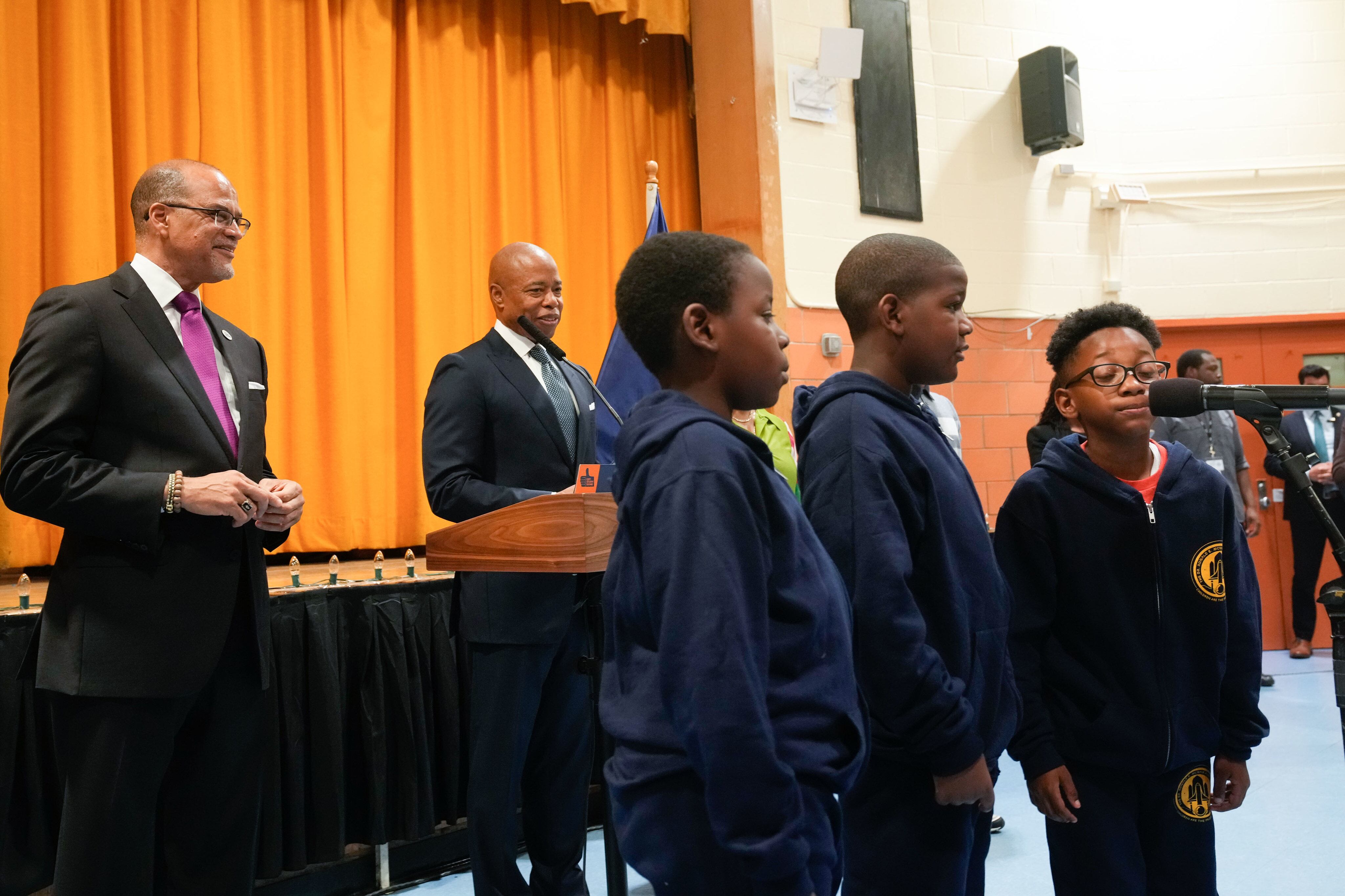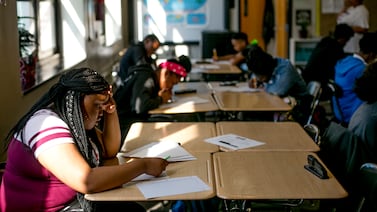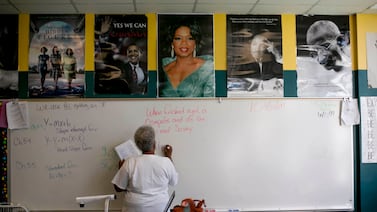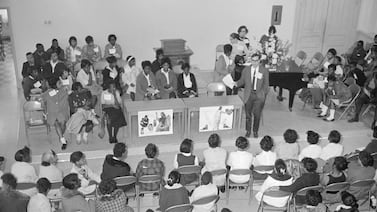Sign up for Chalkbeat New York’s free daily newsletter to keep up with NYC’s public schools.
As students face severe mental health challenges in the wake of the pandemic, New York City officials touted a new effort on Tuesday to help students regulate themselves: two to five minutes of breathing exercises every day beginning next school year.
But the last-day-of-school announcement left some advocates scratching their heads, arguing the mayor has neglected some other elements of his own broader mental health plan and has offered few details about others.
City officials previously floated the breathing exercises in January and Mayor Eric Adams framed them as just one piece of “low-hanging fruit” in a larger mental health push. “It is going to give them a tool that they can use for the rest of their lives,” the mayor said on Tuesday at P.S. 5 in Brooklyn, before participating in a student-led breathing exercise.
Student mental health concerns have grown since the coronavirus pandemic upended nearly all aspects of students’ lives. Many children lost access to the social circles and sense of community that schools offer. Thousands experienced the deaths of loved ones. A growing number of students have struggled to make it to school at all, leading to a spike in chronic absenteeism. And some educators have seen a rise in behavioral issues, including getting high during the school day.
But as the city heads into the summer it has yet to reveal much about a major effort to connect high school students to teletherapy, despite announcing it six months ago. And the mayor’s budget does not include funding for a $5 million program that establishes partnerships between schools and mental health clinics and offers a streamlined process for referring students to counseling.
Adams touted the program, known as the Mental Health Continuum, in his own mental health blueprint. But it is now the subject of a battle with the City Council, whose leaders have pledged to fight to restore the money in the city budget due this month.
“Five million will evaporate at the end of this week if the city doesn’t restore it in the final budget,” said Dawn Yuster, director of the School Justice Project at Advocates for Children. “They have already hired clinicians,” she added. “To rip them away from students and schools would be really devastating.”
Though the Mental Health Continuum has started small with about 50 schools in Brooklyn and the Bronx, advocates say the approach is promising. Participating schools receive training to help staff calm students who are in crisis and connect them to mobile crisis teams and mental health clinics, a partnership between the health and education departments as well as the city’s public hospital system.
One goal is to reduce schools’ reliance on dialing 911 when students are struggling to regulate their emotions, a practice that can be traumatic and counterproductive.
Under a legal settlement, schools are only supposed to use 911 as a last resort when students are in imminent danger, though a recent investigation by ProPublica and THE CITY found schools continue to call safety agents and police thousands of times a year to deal with students in distress, often tangling students up with law enforcement and needless emergency room visits. Those incidents disproportionately involve Black students, who are also more likely to be handcuffed.
Nelson Mar, an attorney at Bronx Legal Services who supports the Mental Health Continuum, said it has previously been subject to budget uncertainty and hopes the money is ultimately restored.
“The Mental Health Continuum has been funded largely by City Council putting it back in the budget in the last two years,” he said, adding he was puzzled by the omission from the mayor’s budget.
A City Hall spokesperson said the mental health program has been funded one year at a time but didn’t say if the city plans to restore it.
Mar and others said deep-breathing exercises could be a useful part of the city’s approach to student well-being. And some educators previously told Chalkbeat they can help students regulate their mood, decrease anxiety, and help them feel ready to learn — though experts said there is little evidence about how the routines affect student achievement.
But more broadly, Mar said, “we need a more systematic approach toward improving emotional health, behavioral health, and mental health within the school setting. It is going to take more than just deep-breathing exercises.”
Some advocates are also still waiting for more details about the mayor’s plan to connect high schools students to teletherapy services, something Adams described in January as “the biggest student mental health program in the country.”
Schools Chancellor David Banks said on Tuesday that high school students will have access to an app that allows them to “be in touch with mental health counselors in real time from their phones.” But city officials have not said how the platform will work, what type of mental health services will be available, who will be eligible, and how it will be monitored.
Dr. Elisa English, the chief program officer at Counseling in Schools, said she is eager for more information about what those services will look like, including how frequently students will have access to counselors.
“How that will roll out — it remains to be seen,” she said.
Alex Zimmerman is a reporter for Chalkbeat New York, covering NYC public schools. Contact Alex at azimmerman@chalkbeat.org.








